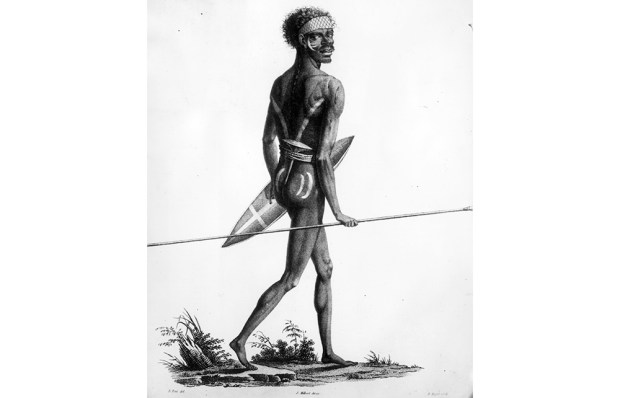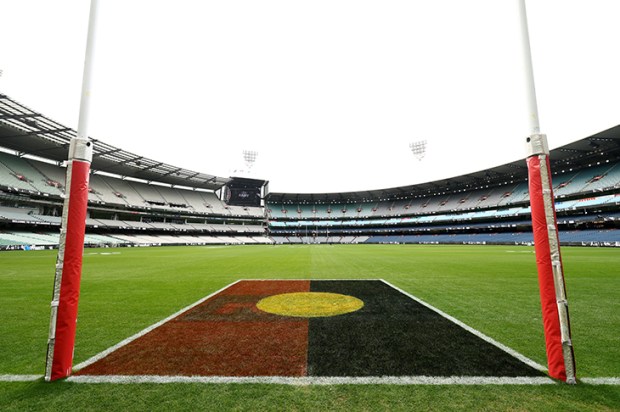The University of Sydney’s Environment Institute (SEI) was launched in 2014 by Professor David Schlosberg ahead of a lecture discussing adaptation ‘to cyclonically transforming environments’.
A decade later, weather patterns remain broadly the same, but unfortunately so does the Institute’s focus on an apocalyptic climate catastrophism. Deputy Vice-Chancellor of Research, Professor Emma Johnston clearly states this in the SEI’s latest annual report. ‘One of the most important things about the Institute is that it sets out to change not just the way we think but the way we act as well,’ she asserts.
However, when Professor Johnston says ‘we’ she does not mean mainstream Australians. She is talking about the Institute’s ‘multiple partnerships with government and industry’. The SEI claims to want to help people and communities, but a decided anti-human narrative runs through the research published since the SEI’s creation. Humans appear to be the enemy and nature the victim. It’s a zero-sum game where ecological concerns are prioritised over human wellbeing.
At the centre of the institute is Professor David Schlosberg – who is now SEI Director. He was there at the SEI’s launch and remains a prominent figure whose research focuses on ‘environmental justice’.
You may well wonder what this is? The answer can be found in Schlosberg’s latest paper where it is argued that traditional views of justice must be deconstructed and re-examined through the lens of identity politics and critical race theory. ‘Critical environmental justice focuses on the role of race, gender, colonisation and settler states, as well as the role of power,’ Schlosberg says, adding, ‘Justice must be deconstructed.’ Concerningly, Schlosberg’s work attacks the concept of ‘justice’ which he claims has ‘multifaceted meanings’. Writing about a recent paper by Schlosberg and his team, the SEI boasts that a critical lens is applied to challenge ‘liberal and state-based remedies notions of justice (sic)’.
The problem with this ‘critical’ approach is it breaks down arguments and words to the point where they have no meaning. This is the inevitable end point of deconstructive processes. It also works against the fundamental purpose of a university which is to bring meaning to the world and pursue truth. Under the banner of ‘environmental justice’, truth appears to be relative and unknowable.
Even more troubling is that much of this research is publicly funded by the Australian Research Council’s Discovery Project Scheme. The SEI secured four grants in 2024 for various projects. Ranging from calculating the carbon footprint of medical procedures to interrogating the environmental narrative around the Botany Wetlands, SEI research highlights the decline of academia into a process of propaganda production. There’s a deep contradiction here – Australian taxpayers are funding research that is, at best, useless to them and, at worst, undermines their own values and priorities. All this expensive nonsense at a time when these same taxpayers are struggling to pay their mortgage and put food on the table.
The ideas coming out of SEI are not just limited to the academic world. They influence public policy, education more broadly, and the media narrative. This can create a feedback loop whereby green activism in universities shapes future government policies while being normalised by the media. Schlosberg openly acknowledges that researchers aim to shape policy with their work stating ‘scholars and activists have been reflecting on the dynamics and complexities of local and global changes underway. Many have emphasised environmental justice’s multiple dimensions in terms of policy and political barriers.’
The rise of green tape, such as Labor’s Nature Positive plan, can be traced back to the sustainability and activist agendas driven by institutes like SEI.
Mainstream Australians have every right to be concerned about academia’s ideological commitment to ‘deconstruction’ and its anti-human implications. Rather than pursue and teach facts, activist academics deny their very existence, preferring instead to pull down the society which provides them with such a comfortable living. Worse, they enlist the assistance of our elected representatives to achieve this.
For a long period of time there have been massive problems in the review processes of the Australian Research Council; these concerns are vindicated when research such as that of the SEI is prioritised over hard science.
Industrialisation, and the human prosperity to which it gives rise, is good for the environment; it provides the means by which it can be managed and protected in a manner not seen in developing nations. Ultimately, better outcomes for people will lead to better outcomes for the environment in which they live.
Got something to add? Join the discussion and comment below.
Brianna McKee is the National Manager of Generation Liberty and a Research Fellow at the Institute of Public Affairs.
You might disagree with half of it, but you’ll enjoy reading all of it. Try your first month for free, then just $2 a week for the remainder of your first year.













